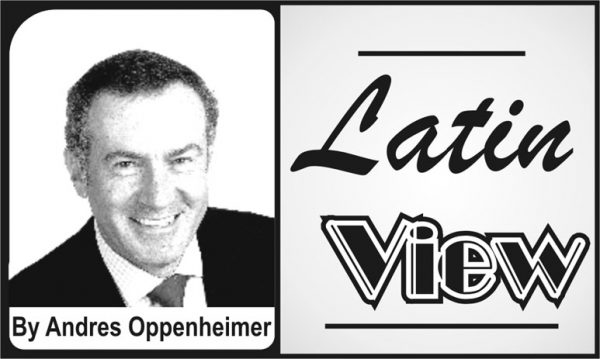
In the absence of a military rebellion that they hoped would have ousted the Venezuelan strongman by now, several members of Latin America’s 14-country Group of Lima are considering teaming up with the European Union’s International Contact Group to explore negotiations with the Maduro regime for foreign-supervised free elections in Venezuela this year, well-placed diplomatic sources say.
The European-led Contact Group has been more open to the idea of talks with the Maduro regime to seek internationally-monitored elections in Venezuela.
“Our expectation that Maduro would be out of power in a short period of time didn’t materialize,” a well-placed Group of Lima source told me. “It may be time to look at other ways to achieve the same goal.”
Latin American and European diplomats agree that there is a political stalemate in Venezuela right now, which threatens to cost many more lives as the country’s humanitarian crisis continues to deteriorate.
Maduro controls the military, but he is not recognized by the United States and much of the Western world. Escalating U.S. oil sanctions are crippling the Maduro regime’s main source or income.
Meantime, National Assembly President Juan Guaidó is supported by 61 percent of Venezuelans, as opposed to 14 percent who back Maduro, according to a recent Datanalisis poll. And Guaidó is recognized by more than 50 countries as Venezuela’s interim leader.
Both sides think that time is on their side. Maduro is hoping that Venezuelans will lose faith in Guaidó’s chances of taking power, and that — much as happened in Cuba — the exodus of millions of more Venezuelans will leave his regime with fewer and more docile mouths to feed.
Guaidó, in turn, is hoping that U.S. oil sanctions on Venezuela will leave Maduro without money to continue paying for is security apparatus, and that growing discontent will trigger a military coup to restore democratic rule.
Looking for ways to end this impasse, Chile’ s foreign minister Roberto Ampuero is holding talks with the European Union’s foreign policy chief Federica Mogherini, who heads the International Group of Contact on Venezuela.
Latin America’s Group of Lima — which includes Brazil, Argentina, Colombia, Peru and Chile — has until now stated that Maduro cannot be part of a negotiated solution to Venezuela’s crisis, because he has cheated the Vatican and several other international mediators time and again in the past.
On the other hand, Mogherini’s International Contact Group, occasionally supported by Uruguay and Mexico, has been holding secret talks with members of Maduro’s entourage about a possible deal for internationally-monitored elections in Venezuela.
In a telephone interview, Ampuero confirmed to me that he is talking with Mogherini about “exploring whether there is common ground” between their two diplomatic groups. But he denied that he is acting as an emissary of the Group of Lima, or that the Group of Lima may split.
“Chile continues to be firmly part of the Group of Lima,” Ampuero told me. “We are exchanging points of view with the Group of Contact on our visions about Venezuela to see if we can find points of convergence.”
Where would that leave Guaidó? Venezuela’s interim president has so far ruled out negotiations with Maduro, because — in addition to having been fraudulently elected and not being a constitutional leader — Maduro has consistently used past negotiations to win time, and further crack down on the democratic opposition.
However, circumstances have changed: the United States, Brazil, Colombia and several other key countries have broken ties with Maduro and imposed sanctions on his regime. Venezuela’s dictator can no longer negotiate from a position of strength. His dictatorship is financially strangled, and neither China nor Russia will bail him out with new loans.
I wouldn’t be surprised if in coming weeks we see a Latin American-European Union agreement — quietly supported by the Trump administration — to step up international sanctions on Venezuela, while offering Maduro and his generals a face-saving way out through internationally-monitored elections. For the better or for the worse, that’s where things are heading.





